
EU organic certification according to Reg. (EU) 2018/848
Receive a quote tailored to your needs
What you need to know:
Every company that produces, processes or markets organic products must be certified according to the requirements of the current EU Organic Regulation. These products can be agricultural products such as seeds and seedlings, food or feed grains, vegetables, fruit, or animal products such as eggs or milk. All processed organic products, such as bread and bakery products, dairy products or meat products, etc., also fall under the scope of the EU Organic Regulation, as do organic feed stuffs.
A full organic inspection is required by law at least once a calendar year. We provide professional support for you and your company in all areas of organic certification in Germany. In addition, Kiwa BCS is accredited in various countries outside the EU to certify companies according to EU organic standards.
You can find out in which countries we are accredited HERE.
An EU organic certification with Kiwa BCS Öko-Garantie GmbH in Germany:
Kiwa BCS Öko-Garantie GmbH is one of the pioneers of the organic movement in Europe (our inspection body number is DE-ÖKO-001) and carries out inspections and certifications in all areas of organic production (except aquaculture).
Certification procedure:
First, you obtain a non-binding offer from us. After positive feedback and conclusion of the contract, we carry out the initial inspection at your business. For each organic inspection, a final inspection report is drawn up containing all inspection points and their results. In order to guarantee high quality and independence in the certification process, we always work according to the four-eyes principle. This means that the inspection and the certification cannot be carried out by the same personnel. After the inspection, a second expert in our office makes the certification decision on the basis of the inspection report. If your company fulfills all legal requirements, our certifiers will issue your organic certificate.
Since 01.01.2022, the new organic regulation VO (EU) 2018/848 has been in force within the EU. The EU organic regulation has been updated to reflect the changes in the rapidly growing global organic market. The new regulation now includes products such as cork, cotton, hides and beeswax, and continues to cover all agricultural products and processed products that can be used as food or feed. The regulations also apply to organic products produced outside the EU and imported from there.
Your advantages:
- Climate protection: Organic farming helps protect our climate. With an EU organic certification, you actively contribute to a sustainable future.
- Consumer needs – With EU organic certification, you contribute to the supply of organic products and thus meet consumer demand.
- Competitiveness – With EU organic certification, your products stay in the trend towards more organic goods and your business remains competitive.
- Kiwa BCS is your competent and personal partner for your certification project and for all questions during the process
Where can be found the latest version of the current EU legal framework?
- The whole set of EU regulations related to organic production are available here.
- Until 31st December 2024, the applicable legal framework for the operators certified by Kiwa BCS outside the European Union is the Kiwa BCS Organic Production Standard. The list of countries are listed in here.
- For countries outside Europe, the new legal framework mandatory from 1st January 2025 will be the Reg. (EU) 848/2018 and its delegated and implementing acts. They are available here. Additionally, in the section Set of EU regulations are the most relevant rules in other languages.
Further certifications of Kiwa BCS Öko-Garantie GmbH:
Overview of our services in the area of organic certification and sustainability.
- EU Organic certification in accordance with Regulation (EU) 2018/848.
- American organic certification NOP (National Organic Program - USDA): NOP certification.
- Japanese organic standard JAS (Japanese Agricultural Standard: JAS certification.
- Korean organic standard: KOC certification.
- Organic Standard of the Kingdom of Saudi Arabia: OSKSA certification.
- Inspection in accordance to: Rainforest Alliance Certification.
- Sustainable aquaculture ASC (Aquaculture Stewardship Council): ASC certification.
- Sustainable fisheries MSC (Marine Stewardship Council): MSC certification.
- Swedish organic standard KRAV: KRAV certification.
- Organic textile standard: GOTS certification (Global Organic Textile Standard).
- Coffee standard Bird Friendly (Smithsonian Migratory Bird Center): Bird Friendly certification.
- Sustainability standard Fair Trade Sustainability Alliance (FairTSA): FairTSA certification.
- Organic association inspection Demeter: Demeter certification.
- Organic association inspection Bioland: Bioland certification.
- Organic association inspection Naturland: Naturland certification
- Swiss organic association inspection BioSuisse International: BioSuisse certification.
Further standards at Kiwa BCS
Regionality is one of the pillars of a sustainable food economy. That is why we at Kiwa BCS focus on regional organic standards in addition to the major, partly global, certifications. Consumers expect the highest level of transparency, especially with organic products. With regional seals and associations, you increase your customers' trust in your products. Below you will find the regional solution for your company.
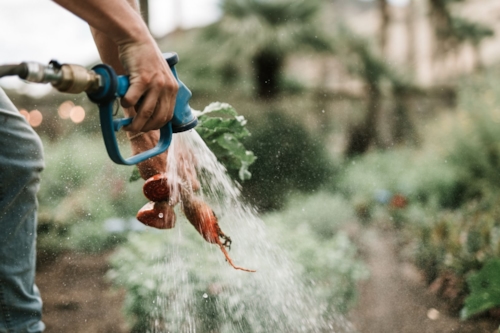
OSKSA – Organic Standard of the Kingdom Saudi Arabia
Saudi Arabia has been investing heavily in organic agriculture for over 10 years. The Ministry of Agrarian Culture is proud of its own organic standard, the OSKSA. Those who associate Saudi Arabia with the cultivation of dates are right, but underestimate the modern agriculture there. Learn more abot OSKSA here.

Organic Association Inspection Bioland
Bioland's fundamental values include biodiversity, climate and environmental issues, regionality, animal welfare and participation in agricultural politics. EU organic certification is a requirement for Bioland inspection by Kiwa BCS. Since the Bioland requirements go beyond those of the EU organic regulation, you can upgrade your products with a Bioland certification.
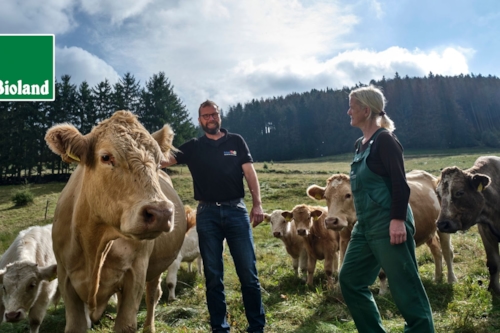
FSSC 22000 Food Safety
FSSC 22000 Food Safety System Certification with Kiwa: improve your food manufacturing safety, meet customer demands and increase your profit.
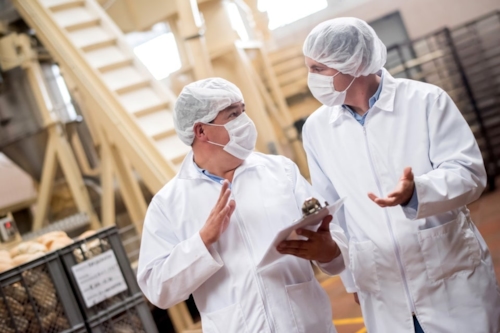
NOP - National Organic Program (USA)
The National Organic Program NOP is part of the US Department of Agriculture (USDA). Kiwa BCS is accredited in 2002. Certification under NOP regulations entitles a company to use the USDA NOP seal in accordance with the requirements of the Regulation.
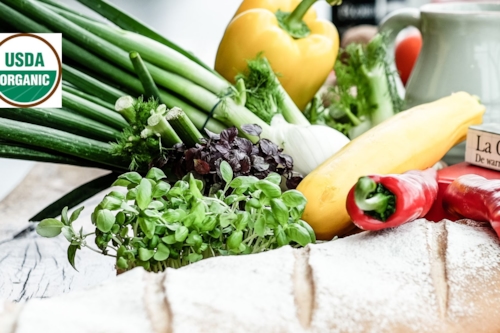
JAS - Japanese Agriculture Standard
Japan's geographical location makes sure, among other things, that 40% of the national food demand is usually imported. A growing proportion of these food imports are certified organic. With a JAS certification you participate in Japan's organic market.
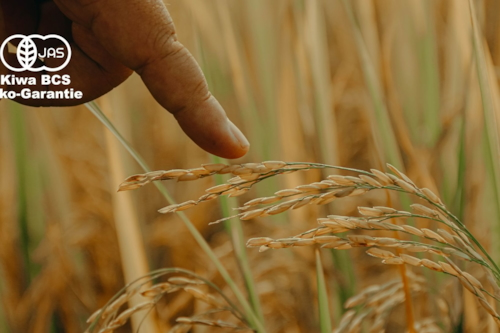
Organic association inspection Naturland
Naturland promotes organic agriculture worldwide and is one of the largest organic farming associations with over 50,000 farmers in Germany. As a future-oriented association, organic competence and social responsibility belong together for Naturland. Processors and farms that are part of Naturland work with the highest organic standards, which are stricter than those of the EU organic label. They produce high-quality food without genetic engineering - to protect the environment and the consumer.
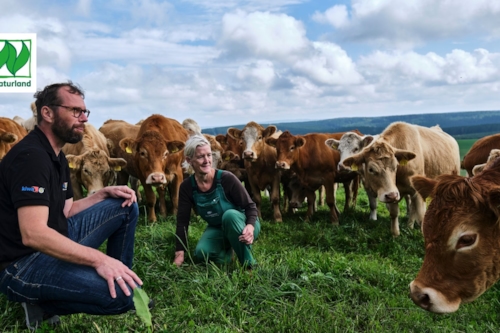
KOC - Korean Organic Certification
The Korean organic market has been booming for almost 10 years. With higher incomes, the Korean population is placing more emphasis on organically grown food. With a KOC certification, a product can be labelled and sold as "organic" in Korea. In addition, the Korean organic logo can be attached to the product.

Bird Friendly Coffee Standard
Bird Friendly is a standard established by the Smithsonian Migratory Bird Center (SMBC). The SMBC is part of the National Zoo, which is located in Washington D.C. (USA). The Bird Friendly Standard is one of the most stringent of the third-party certified environmental standards. SMBC's Bird Friendly certification is the only one with a 100% guarantee of organic agroforestry habitat for wild birds.

Bio Suisse organic association inspection
The EU organic regulation does not apply in Switzerland. The privately organised Bio Suisse organic standard is aimed at farmers, processors and traders who want to sell organic products with a Bio Suisse label in Switzerland. Anyone wishing to supply organic products for sale or processing must be certified in accordance with the Bio Suisse standards so that the products can be labelled with the Bud logo in Switzerland. We are happy to carry out the Bio Suisse inspection for you in all countries where we are approved to do so.

Demeter organic association inspection
Demeter stands for products of the biodynamic farming method. This oldest ecological form of land cultivation goes back to the impulses of Rudolf Steiner, who also initiated Waldorf education and anthroposophical healing at the beginning of the 20th century.
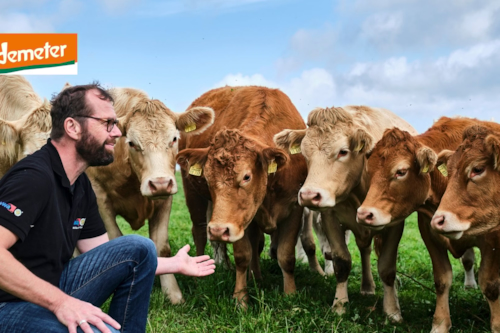
KRAV - Swedish Organic Verification
KRAV certification with Kiwa: prove the organic origin of your products, meet customer demands and sell in the Swedish market.
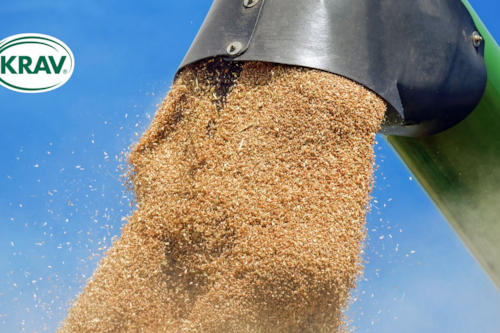
Sustainability: Global Organic Textile Standard (GOTS)
The Global Standard for Ecological Textiles "GOTS" is the world's leading manufacturing standard for textiles made from ecological fibres. It defines demanding environmental criteria for the entire ecological textile supply chain and also requires compliance with social criteria.
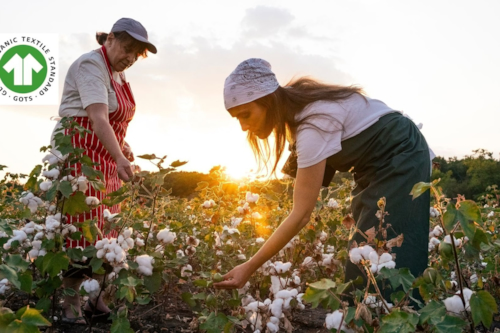
Kiwa BCS Öko-Garantie GmbH
Marientorgraben 3-5
90402 Nürnberg
Code: DE-ÖKO-001
🌍︎ Kiwa BCS Öko Garantie GmbH
☎ Contakt and Contact persons
✉ DE.Info.BCS@kiwa.com
☎ +49 911 424 39 0
Important Documents
Do you want to start an EU Organic-Certification?
Fill in the application below and send it to us.